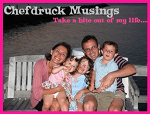The Paradoxes of Caring
A brief piece in the November 21 issue of The Week describes my novel In Hovering Flight as, among other things, a consideration of “the paradoxes of caring.” The more I’ve thought about that phrase the more apt it’s come to seem to me.
Addie and Tom, two of the novel’s central characters, care passionately about birds and about the natural world, and also about the work they do in connection with this passion for the environment—Tom as an ornithologist, Addie as a bird artist and, eventually, an environmental activist. They also care deeply about their daughter Scarlet, the book’s other important character. For Tom, there’s a healthy balance and a meaningful connection between his various loves. But for Addie, the people and things she cares about often seem at war with one another. When Scarlet is a baby, Addie finds it nearly impossible to get to her blind in the woods and sketch, much less do any painting. When Scarlet is older and more independent, Addie’s despair over overdevelopment and environmental degradation often pulls her away from her work. Later, her own declining health interferes. So there’s one paradox of caring: for the mother in this book, the various people and things she cares about seem to interfere with this other important thing, her work as an artist.
When I began thinking about what I might say about motherhood and the writing of In Hovering Flight, I thought, initially, that I would write about that term “hovering” in the title. “In hovering flight” is actually a phrase from Roger Tory Peterson’s description of the song of the bobolink in the fifth edition of his Birds of Eastern and Central North America (“Song, in hovering flight and quivering descent, ecstatic and bubbling, starting with low, reedy notes and rollicking upward”); these are lines that Scarlet, who grows up to be a poet, uses when she tries to convince her father that words are necessary to capture the beauty of bird song. But these days the term “hovering” is being used in another context, to refer to the overly protective (and damaging) involvement of so-called “helicopter parents.” In a review in the November 17 New Yorker Joan Acocella discusses several recent books on “the rise of overparenting”—or, “hothouse parenting,” or “death-grip parenting,” or, in Acocella’s terms, “hovering parenting.”
Isn’t it ironic, I imagined writing as I reflected on motherhood and my novel, that that word “hovering” appears in the title of my novel, where I deliberately set out to portray two parents who are the antithesis of smothering, overprotective parents. As an adult, Scarlet sees the debt she owes her parents, who have taught her to love and value her work, however little the world might value it—an important lesson for a young woman who aspires to a life as a poet. She describes a childhood and early adolescence of warmth and freedom, “everything as safe and sure as Eden.” And when she is ready to leave the nest, she flies north, to Maine, with the confidence that, surely, only a child of hands-off, anti-hovering parents like Addie and Tom could possess.
But of course that’s only telling part of the story. Actually, Scarlet leaves home before she has finished school, choosing to spend her last year of high school at the home of her parents’ friend Cora—away from her mother’s despair over her work and over the planet’s decline, and also away from Addie’s increasingly public activism. And here I can see something else in what I was doing, in writing about Scarlet and Addie: I was exploring the possibility that a mother’s passion for her own work, or a mother’s own passions in general, might eventually alienate her from her own child.
My daughter Anna was three when I began working in earnest on In Hovering Flight. She was, in very real ways, my inspiration for the young Scarlet, and my memories of the elation, and also the profound exhaustion, that I felt during her first months were still vivid, and so shaped my writing about Addie’s first months with baby Scarlet. What I didn’t completely own up to in my initial thinking about this piece were the ways in which In Hovering Flight enacts my own personal paradox of caring: for my family (my daughter and husband, and now too my own aging parents), for my teaching, for my work as a writer. The effort to balance all of these is my struggle—and, I know, also my gift—every day. I hope for the ability to hold all of this together as gracefully as writer Scott Russell Sanders, who says in an interview published in the September 2008 Writer’s Chronicle
Like any writer, I struggle to preserve the mental space necessary for creative work. But I’m not willing to abandon the students and others who depend on me, I’m not willing to exploit my friends, and I’m not willing to sacrifice the people I love in order to produce a more nearly perfect book. So I go on struggling to make my imperfect art in the midst of relationships and responsibilities.
The Quakers say that work is love made visible. That’s what I wanted to give to all my characters: work that, for them, is their love, their deep caring—for life, for the planet, for one another—made visible. But I realize now that in having Addie struggle, and at certain points fail, in the effort to resolve the paradoxes of caring, I was being a bit more realistic. When you care that much, and for that many, it isn’t going to be easy—for you or for the ones you love.
Joyce Hinnefeld












